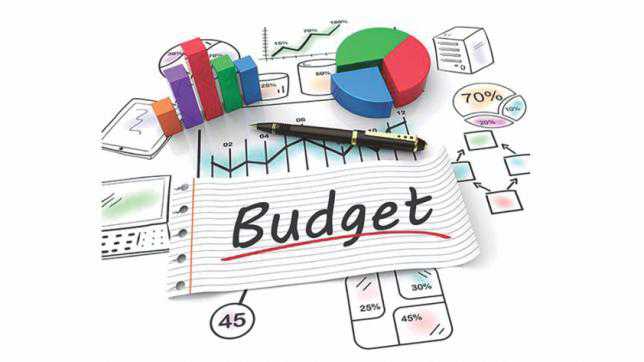Construction sector against any tax, VAT hike

Image collected
The upcoming budget should not impose any new tax, duty or value-added tax on the construction sector and rather explore ways to cut them to help it further its contribution to the economy, sector people and trade bodies said.
SM Khorshed Alam, president of the Bangladesh Association of Construction Industry, said if the new VAT and Supplementary Duty Act comes into effect from the next fiscal year, the new rates should be kept at a tolerable level for the construction sector.
The budget for the next fiscal year is set to be unveiled on June 13.
Alam said taxes and VAT should be the same during the whole execution period of a project, instead of varying from a fiscal year to another fiscal year.
The Bangladesh Steel Manufacturers Association (BSMA) said the existing tariff prices on steel products, including mild-steel (MS) rods, should continue in the next fiscal year, in order to keep their prices tolerable at consumer level.
In a letter to the National Board of Revenue (NBR), the association says if the prices of gas go up, the cost of production of billet or ingot used in the steel industry will increase, which will lead to uneven competition for the local steel makers.
In order to protect the local steel manufacturers, the regulatory duty should be raised to 30 percent from 20 percent, it said.
The BSMA requested the NBR not to increase duty and tax on imports of sponge iron used in billet production.
Alamgir Shamsul Alamin, president of the Real Estate & Housing Association of Bangladesh (REHAB), said the government should place special emphasis on the sector in the upcoming budget.
“No new tax or VAT should be imposed on any construction materials,” he said, adding that he hopes the scope to legalise untaxed money in the housing sector would continue in the next fiscal year as well.
The REHAB has proposed the government introduce a long-term refinancing scheme that carries single-digit interest rate and form a Tk 20,000 crore fund to help the sector make a turnaround, Liakat Ali Bhuiyan, first vice-president of the REHAB, said.
Another proposal is seeking a cut in flat and plot registration taxes and fees, from 14-16 percent now to 7 percent.
“Because of excessive registration-related cost, plot or apartment buyers have lost interest in having their properties registered. As a result, the government is losing a lot of revenue,” Bhuiyan, also the chairman of the budget committee of the REHAB, said.
The REHAB said a secondary market should be introduced in the housing sector to allow the sales of old apartments at a nominal registration fee.
The realtors’ association also called for reducing VAT; cutting gains tax from 15 percent to 4 percent; granting waivers to developers for five years from collecting suppliers’ VAT and source tax; encouraging decentralised urbanisation through tax holiday; and increasing flow of credit in the housing sector by providing funds to Bangladesh House Building Finance Corporation.
The Bangladesh Cement Manufacturers Association (BCMA) called for import tariff rationalisation for the raw materials and machinery used by the sector. It, too, has submitted a set of proposals to the revenue administration.
In the letter signed by its President Mostafa Kamal, the BCMA said 100 percent raw materials needed for cement production are imported. So, if the duty rate is not logical, it affects the price of the product.
The association called for fixing import duty at 5 percent on imported raw materials or bringing down specific duty from Tk 500 to Tk 200; cutting value-added tax on imported raw materials to 5 percent from 15 percent; and reducing advanced income tax from 5 percent to 2.5 percent.
It said the existing regulatory duty of 5 percent on fly ash should be withdrawn. Besides, the import duty on the bulk carriers that are used in the government’s mega projects should go. There is no commercial use of bulk carriers in the country and it is not made in Bangladesh, it said.
The cement manufacturers said the refundable amount in the deposited advanced income tax should be returned to cement companies within 60 days, and for any delay after that, late interest should be given to cement makers.
According to the association, some cement makers have installed modern and eco-friendly technologies to expand production capacity. This will raise investment in the sector from Tk 25,000 crore to Tk 40,000 crore and increase the production capacity by 25 percent.
“This will definitely help the government implement its plans on physical infrastructures,” it said.
The association’s members use a chemical called cement grinding aid, which has multiple benefits for cement manufacturing.
“But we are getting reports from our members that they can’t use quality products from the developed world as there is a high tariff value fixed depending on the origin of the product.”
Source: https://www.thedailystar.net
Previous Story
- ‘Bangladesh to become beacon of tourism’
- NBR chairman: TIN not mandatory for opening BO...
- Special Facilities Provided by BCI to the Young...
- Duty waiver to boost local manufacturing of motorcycles
- ATA Carnet System implementation will help boost trade:...
- DSE members investing funds on stocks
- Govt’s tax collection from DSE drops by 24.42pc...
- NBR yet to issue SRO on reduced gains...